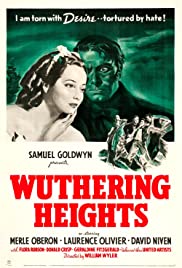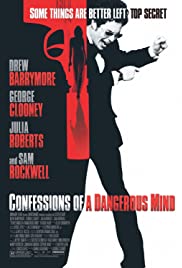Today, a US President is considered a failure if he doesn’t win two terms. How often does an elected President get re-nominated for another term and then loses in November?
Let’s take a look. Let’s start by looking at edge cases.
First of all, I’m not counting John Adams. Political parties weren’t quite formed yet when he ran again, so it doesn’t really qualify as a modern election.
Believe it or not, Presidents James Polk, James Buchanan and Rutherford B Hayes did not even seek a second term. It’s hard to believe but there were once Presidents whose ego did not demand that they maximize their time in office. Although, to be fair, of the three, Buchanan and Hayes probably didn’t stand a chance of getting their party’s nomination and Polk died literally like two months after he left office.
Next, let’s throw out the one term Presidents who died in office. It’s certainly not their fault that they did not get re-elected. William Henry Harrison, Zachary Taylor, James Garfield, Warren Harding, and John Kennedy all died during their first term.
We should also exclude the Vice Presidents that completed the deceased President’s term. After all, although they were on the ticket, no one really expected them to become President. When the next election cycle came, their party kicked them to the curb. John Tyler, Millard Fillmore, Andrew Johnson, and Chester Arthur form this club of accidental Presidents.
Special credit goes to Theodore Roosevelt, Calvin Coolidge, Harry Truman, and Lyndon Johnson. These four finished a deceased President’s term and then got elected on their own.
As far as I can tell, Franklin Pierce was the only sitting elected President that wanted to run again and his party said, nah, we’re good. That’s gotta suck if you’re the President. Weirdly, technically LBJ also kind of falls under this category. After getting elected in his own right, he was kind of running for another term when he nearly lost a primary. That scare was enough for him to immediately bow out without further ado.
Gerald Ford is his own category. Spiro Agnew resigned and Nixon appointed him as VP. Nixon then resigned and Gerald Ford became President. He’s the only President in US history to become President without ever receiving a single electoral vote. Therefore, it’s not all that shocking that he lost to Jimmy Carter.
Benjamin Harrison and Grover Cleveland together form their own little category. In 1884, Cleveland won the Presidency. In 1888, Harrison ran against Cleveland, and even though Cleveland won the popular vote, Harrison won the electoral college (see, it doesn’t always happen just in the twenty-first century). In 1892, Cleveland, still popular, sought a rematch. Sadly, Harrison’s wife died two weeks before the election and both campaigns ceased campaigning out of respect (simpler times!). Cleveland handily beat Harrison in both the popular vote and in the electoral college.
OK! That’s a bunch of edge cases. Let’s talk about elected Presidents that sought another term, got their party’s nomination, and then lost in the general election.
John Quincy Adams In 1824, he lost the popular vote and was behind in the electoral college to Andrew Jackson. Jackson did not have a majority in the electoral college either, so the election was thrown to the House. There, fellow nominee Henry Clay threw his support to Adams. That was enough to get Adams the victory. Adams then nominated Clay to be Secretary of State, which was then seen as the stepping stone to the Presidency. Jackson claimed Corrupt Bargain! That was enough to pretty much doom Adams’ Presidency and he lost to Jackson in 1828.
Martin Van Buren He was Andrew Jackson’s VP. He road those coattails to the Presidency in 1836. Alas, the fruits of Jackson’s economic policies finally became apparent during Van Buren’s term. There was a vicious economic depression. This doomed Van Buren to lose to William Henry Harrison in 1840.
William Howard Taft In 1908, Theodore Roosevelt was on top of the world. Succeeding the assassinated William McKinley, in 1904 Roosevelt was re-elected. He promised that he wouldn’t run for re-election. He essentially anointed Taft as his successor. Taft easily won the election. It turned out that Roosevelt, still relatively young and as always, hyper-energetic, did not take to retirement. Criticizing and chastising Taft, he sought the Republican nomination in 1912. Denied, he ran on the Progressive ticket. Taft never had a chance. Roosevelt got more votes than Taft, but with the Republican vote split, Woodrow Wilson waltzed into the White House.
Herbert Hoover Elected in 1928, he was considered one of the great humanitarians (he essentially fed Europe after it was ravaged in WWI) and one of the great engineering businessmen. When the Great Depression struck during his term, of anyone, you’d think that he would have been up to the task. Alas, it was not to be the case. Widely unpopular, he was wiped out by Franklin Roosevelt.
Jimmy Carter In 1976, with the nation stricken by Watergate, Nixon’s resignation, Ford’s subsequent pardon, the lingering after effects of The Vietnam War, faith and trust in government was at an all time low (since eclipsed). Given all of that, maybe it doesn’t seem all that strange to give the job over to the nuclear engineer, peanut farmer, evangelical, Governor of Georgia. Whatever the reason, the nation soon became disenchanted with Carter as well. With the Iranian hostage crisis, the seemingly impossible stagflation (high unemployment, high inflation, low economic growth), and the continued energy crisis, the nation was ready for a more flag waving, optimistic point of view. Enter Ronald Reagan in 1980.
George H W Bush In 1988, as Van Buren before him, Bush rode the very popular (well, except for the Iran Contra thing) Reagan’s coattails to the White House. Like Van Buren, continuing the previous President’s economic policies led him to a recession. Being (in my opinion), a pragmatic (and again, in my opinion, that’s a good thing) politician, he made a deal with the Democratic congress to raise taxes. That breach of faith from Republican dogma in conjunction with the lingering recession and the scourge of Taft, a substantial third party challenge from H Ross Perot, was enough to hand the election over to Bill Clinton.
That’s it! In coming up on 220 years of modern US political elections, a grand total of six elected Presidents lost their re-election bids in November. Did any patterns come out? Well, economic conditions seem to be a primary mover. The other major factor seems to be credible third party candidates.
Where does that leave Donald Trump seeking re-election in 2020?
With all due respect to Kanye, I don’t see any credible third party candidates.
You would think that an economy that lost 22 million jobs and that declined 33% would be a killer. On top of that, we’re in the midst of the worse pandemic in 100 years. Despite having the most expensive health care system, our country’s management of it is embarrassing in its incompetence. Despite having just 4% of the world’s population, we are currently accounting for 22% of the world’s deaths. Mass protests concerning racial injustice have been occurring for months all across the country. Trump’s approval rating, never above 45%, is now in the high 30s.
Looking at history, this fits into the pattern of a sitting President losing re-election. However, given the Republican’s current advantages in the electoral college and all of Trump’s previous norm breaking precedents (that’s pretty talk for doing whatever the fuck he wants), I have no idea what’s going to happen.
Everyone vote!








